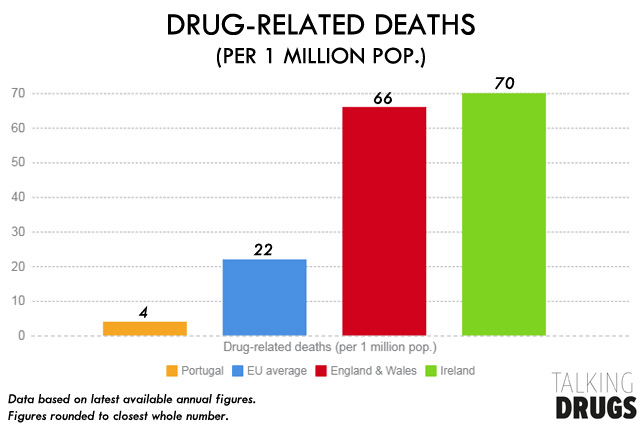Ireland should decriminalise personal drug possession to improve health outcomes, reduce stigma, and save money, a new report has declared.
The policy paper – Not Criminals: Underpinning a health-led approach to drug use – was published (PDF) on October 8 by Irish drug service the Ana Liffey Drug Project and the London School of Economics’ International Drug Policy Unit. After investigating the consequences of prohibitionist drug policies in Ireland, and the success of alternative policies abroad, the report makes several key recommendations for improving health outcomes in the country.
Alongside decriminalising possession of small amounts of drugs for personal use, the report recommends that Ireland’s new drug policies should include flexible and reasonable threshold quantities for what is defined a "small amount". This is an important part of drug decriminalisation, as having a low threshold quantity can lead to people continuing to be criminalised en masse for personal drug possession despite legislative change – as is currently the case in Mexico, Poland, and Russia.
The report also notes that sanctions for drug possession should not be punitive or mandatory – such as fines or forced treatment – and instead be "solely health based, supportive, voluntary and with as many opportunities afforded to the individual as needed". While non-criminal punitive sanctions may not have the legal consequences of criminalisation, the imposition of fines or mandatory treatment can put people under considerable financial and psychological duress – particularly vulnerable groups such as homeless people or those with mental health conditions.
Tony Duffin, CEO of the Ana Liffey Drug Project and one of the report’s authors, said in a press release: “We need to be pragmatic. Decriminalisation is not a silver bullet – it does not solve everything – but it is a better policy choice than criminalising simple possession. It is not being soft on drugs – it’s about dealing with the reality that lots of people use drugs and that criminalising them doesn’t help.”
Almost three-quarters of drug offences in Ireland were for personal drug possession in 2017, the report notes, citing the Central Statistics Office. This mass criminalisation has done little to counter the overdose crisis in the country; the rate of drug-related deaths among adults was 70 per one million in 2015 – over three times higher than the European Union average. This figure is a staggering 18 times higher than the rate of Portugal, which decriminalised personal drug possession in 2001.
The report has been published at an important time, as the Irish government has established a working group to consider alternative approaches to personal drug possession that have been taken in other jurisdictions around the world. Meanwhile, plans are underway to open Ireland’s first drug consumption room in Dublin to reduce harms related to public drug use in the city.
Currently, over 20 countries have decriminalised the possession of small quantities of any drugs for personal use, although implementation varies greatly.
Read the full report: Not Criminals: Underpinning a health-led approach to drug use


